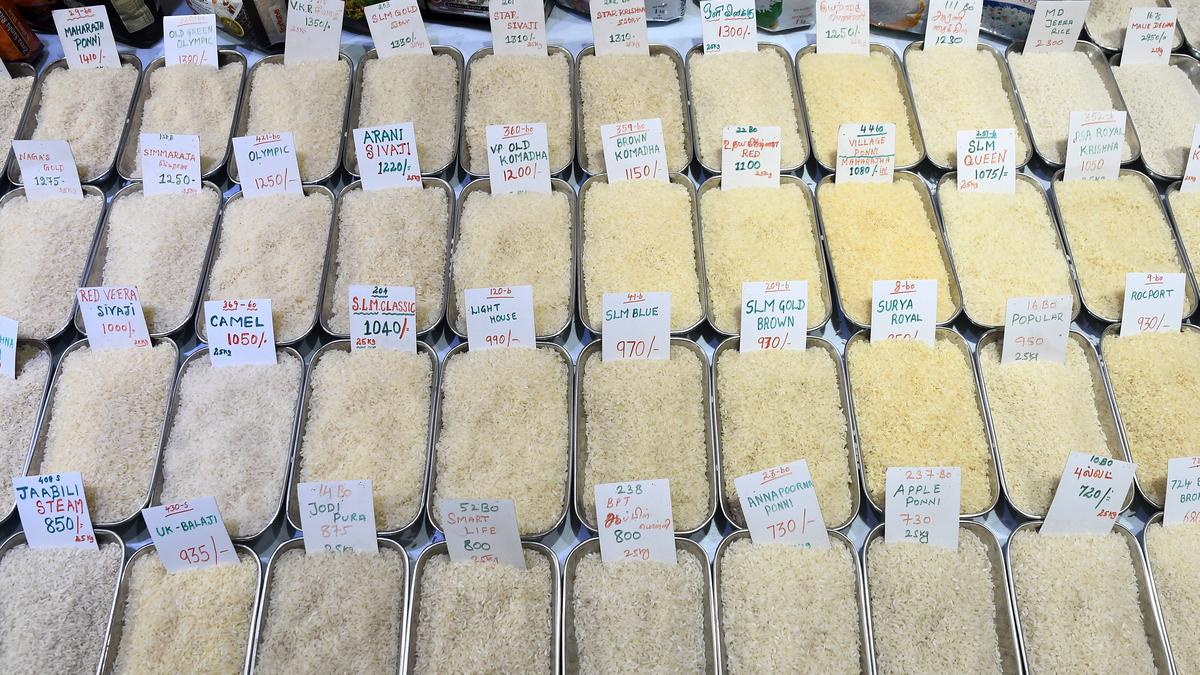
Ban on rice exports unlikely to affect T.N. rice producers
The Hindu
The ban imposed by the Central government on the export of rice (excluding basmati and parboiled) is unlikely to immediately affect rice producers in Tamil Nadu or Tamils living abroad, as both the export of rice from T.N. and the consumption of rice by Indians abroad is predominantly parboiled.
The ban imposed by the Central government on the export of rice (excluding basmati and parboiled) is unlikely to immediately affect rice producers in Tamil Nadu or Tamils living abroad, as both the export of rice from T.N. and the consumption of rice by Indians abroad is predominantly parboiled.
When asked about the possible impact of the ban and whether any representation had been made by rice producers in this regard, a senior official of the Agriculture and Farmers Welfare Department replied in the negative. “The industry is of the view that non basmati rice can be converted into parboiled, and can be exported, as parboiled and basmati rice are not included under the ban,” the official told The Hindu. Tamil Nadu is among the major rice producing States in the country.
M. Sivanandan, president of the Mannachanallur Taluk Rice Mill Owners Association pointed out that the ban on rice exports would help stabilise rice prices, as the next harvest will be for about three months in January-February in Tamil Nadu. Usually, an increase in rice price would be seen in November, once the stock from the previous produce runs out. “Since exports are banned now, this has likely prevented the price rise,” he said.
About 95% of non-resident Indians consume parboiled rice and only the remaining few consume raw rice or use it to make sweets during festivals. “Due to the tensions over the Russian invasion of Ukraine, and the eventual interruption in the movement of grains, wheat-eaters are expected to take to rice,” he added.
Mr. Sivanandan said the Central government has placed a ban on the exports of rice to keep prices under control, especially because this is an election year and since the prices of pulses and vegetables are already rising.
Asked if there would be any immediate impact on rice producers in T.N., Mr. Sivanandan said there would not be. Even if the ban was prolonged, producers would opt for parboiled rice, so that it could be exported. “It will take about two days for a batch of rice to be converted into parboiled rice,” he said.
According to the Union Ministry of Agriculture & Farmers Welfare, paddy was cultivated in 2.21 million hectares in Tamil Nadu and its production during 2021-22 was 8.07 million tonnes.

Bangladesh is witnessing renewed political tension after the killing of Sharif Osman Hadi, a young leader who emerged during the July–August 2024 uprising that led to the removal of Sheikh Hasina. Hadi later headed the radical group Inquilab Mancha and was campaigning ahead of the 2026 parliamentary election when he was shot in Dhaka. His death has triggered protests, diplomatic friction with India, and concerns over rising political violence as Bangladesh heads towards elections under an interim government.












